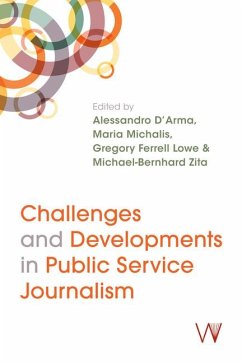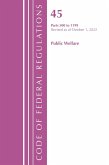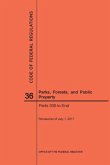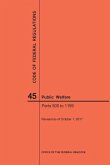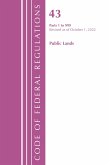Challenges and Developments in Public Service Journalism
Herausgeber: D'Arma, Alessandro; Zita, Michael-Bernhard; Michalis, Maria; Ferrell Lowe, Gregory
27,99 €
inkl. MwSt.
Versandfertig in über 4 Wochen

14 °P sammeln
Challenges and Developments in Public Service Journalism
Herausgeber: D'Arma, Alessandro; Zita, Michael-Bernhard; Michalis, Maria; Ferrell Lowe, Gregory
- Broschiertes Buch
- Merkliste
- Auf die Merkliste
- Bewerten Bewerten
- Teilen
- Produkt teilen
- Produkterinnerung
- Produkterinnerung
Challenges and Developments in Public Service Journalism, the 11th RIPE Reader, examines the role of public service journalism, as well as the opportunities and challenges of delivering it in today's increasingly complex and competitive digital media environment.
Andere Kunden interessierten sich auch für
![The Sage Guide to Key Issues in Mass Media Ethics and Law The Sage Guide to Key Issues in Mass Media Ethics and Law]() The Sage Guide to Key Issues in Mass Media Ethics and Law409,99 €
The Sage Guide to Key Issues in Mass Media Ethics and Law409,99 €![Code of Federal Regulations, Title 45 Public Welfare 500-1199, Revised as of October 1, 2022 Code of Federal Regulations, Title 45 Public Welfare 500-1199, Revised as of October 1, 2022]() Office Of The Federal Register (U SCode of Federal Regulations, Title 45 Public Welfare 500-1199, Revised as of October 1, 202272,99 €
Office Of The Federal Register (U SCode of Federal Regulations, Title 45 Public Welfare 500-1199, Revised as of October 1, 202272,99 €![Regulatory Bargaining and Public Law Regulatory Bargaining and Public Law]() Jim RossiRegulatory Bargaining and Public Law51,99 €
Jim RossiRegulatory Bargaining and Public Law51,99 €![Code of Federal Regulations Title 36, Parks, Forests and Public Property, Parts 300-End, 2019 Code of Federal Regulations Title 36, Parks, Forests and Public Property, Parts 300-End, 2019]() NaraCode of Federal Regulations Title 36, Parks, Forests and Public Property, Parts 300-End, 201981,99 €
NaraCode of Federal Regulations Title 36, Parks, Forests and Public Property, Parts 300-End, 201981,99 €![Code of Federal Regulations Title 36, Parks, Forests and Public Property, Parts 300-End, 2017 Code of Federal Regulations Title 36, Parks, Forests and Public Property, Parts 300-End, 2017]() NaraCode of Federal Regulations Title 36, Parks, Forests and Public Property, Parts 300-End, 201769,99 €
NaraCode of Federal Regulations Title 36, Parks, Forests and Public Property, Parts 300-End, 201769,99 €![Code of Federal Regulations Title 45, Public Welfare, Parts 500-1199, 2017 Code of Federal Regulations Title 45, Public Welfare, Parts 500-1199, 2017]() NaraCode of Federal Regulations Title 45, Public Welfare, Parts 500-1199, 201763,99 €
NaraCode of Federal Regulations Title 45, Public Welfare, Parts 500-1199, 201763,99 €![Code of Federal Regulations, Title 43 Public Lands 1-999, Revised as of October 1, 2022 Code of Federal Regulations, Title 43 Public Lands 1-999, Revised as of October 1, 2022]() Office Of The Federal Register (U SCode of Federal Regulations, Title 43 Public Lands 1-999, Revised as of October 1, 202272,99 €
Office Of The Federal Register (U SCode of Federal Regulations, Title 43 Public Lands 1-999, Revised as of October 1, 202272,99 €-
-
-
Challenges and Developments in Public Service Journalism, the 11th RIPE Reader, examines the role of public service journalism, as well as the opportunities and challenges of delivering it in today's increasingly complex and competitive digital media environment.
Hinweis: Dieser Artikel kann nur an eine deutsche Lieferadresse ausgeliefert werden.
Hinweis: Dieser Artikel kann nur an eine deutsche Lieferadresse ausgeliefert werden.
Produktdetails
- Produktdetails
- Verlag: University of Westminster Press
- Seitenzahl: 310
- Erscheinungstermin: 27. Februar 2025
- Englisch
- Abmessung: 229mm x 152mm
- Gewicht: 454g
- ISBN-13: 9781915445605
- ISBN-10: 1915445604
- Artikelnr.: 72127316
- Herstellerkennzeichnung
- Libri GmbH
- Europaallee 1
- 36244 Bad Hersfeld
- gpsr@libri.de
- Verlag: University of Westminster Press
- Seitenzahl: 310
- Erscheinungstermin: 27. Februar 2025
- Englisch
- Abmessung: 229mm x 152mm
- Gewicht: 454g
- ISBN-13: 9781915445605
- ISBN-10: 1915445604
- Artikelnr.: 72127316
- Herstellerkennzeichnung
- Libri GmbH
- Europaallee 1
- 36244 Bad Hersfeld
- gpsr@libri.de
Alessandro D'Arma is a Reader in the School of Media and Communication at the University of Westminster, where he is also the Director of its Ph.D. programme. His research interests revolve around communications policy and the political economy of media industries, with a focus on issues around public service media, the politics of media policy and the digital transformation of the media industries. He is the elected Co-President (with Maria Michalis) of the International Association of Public Media Researchers (IAPMR). Previously (2016-2021), he served as Co-Chair of the Public Service Media Policies Working Group of the International Association for Media and Communication Research (IAMCR). Between 2019 and 2021, he led the AHRC-funded Research Network on 'Innovation in Public Service Media Policies', promoting collaborations between academics and the wider community of PSM stakeholders. Maria Michalis is Professor of Communication Policy and Deputy Director of the Communication and Media Research Institute (CAMRI, University of Westminster). She is the elected Co-President (with Alessandro D'Arma) of the International Association of Public Media Researchers (IAPMR). Her current work focuses on digital governance, the future of public service media, and digital sustainability. She is author of Governing European Communications (Lexington 2007) and has published numerous book chapters and refereed academic articles in journals. Prof Michalis makes regular submissions to policy consultations. She sits on the Board of Trustees of the Voice of the Listener and the Viewer (VLV) in the UK and is on the Advisory Committee of the European Audiovisual Observatory (Council of Europe) representing the European Alliance of Listeners and Viewers' Associations. In 2020, she was a member of the UK press regulator's IMPRESS Advisory Group on the review of its regulatory scheme. Gregory Ferrell Lowe (Ph.D. 1992, University of Texas at Austin) is Professor in Residence and Director of the Executive Education Program at Northwestern University's international campus in Qatar. Dr. Lowe was previously Professor of Media Management at the University of Tampere in Finland (2008 - 2017) and Senior Advisor for Corporate Strategy and Development at the Finnish Broadcasting Company, Yleisradio (1998 - 2007). In 2000, he founded the RIPE international initiative for the development of public service in media. Prof Lowe was twice elected President of the European Media Management Association (emma 2012 - 2016) and served as Chair for the World Media Economics and Management Conference (WMEMC) in 2021. He has served as lead or co-editor for all but one of the RIPE Readers and serves as RIPE Continuity Director in the leadership team of the International Association of Public Media Researchers (IAPMR). He served as Lead Principal Investigator for a 2020-2022 project investigating science journalism in Qatar (financed by the Qatar National Research Fund). Michael-Bernhard Zita is a doctoral researcher in the area intersecting digital infrastructure, media institutions providing services for the common good (PSM and Community Media) and educational programmes, especially those that include media literacy. His guiding research question is how to connect these structures in a societal process for a sustainable outcome. Ideally, this will be established as a 'European Digital Public Sphere' as an alternative to structures that promote data capitalism or state control of data and citizens. He studied communication science at the University of Vienna, where he was also involved in organising courses and lectures. In addition to research, he works in the field of project management of EU projects and the promotion of media education and the European idea in Austria. He has been following the activities related to developing a European Digital Public Sphere as a member of projects, organisations and networks for the last 4 years.
